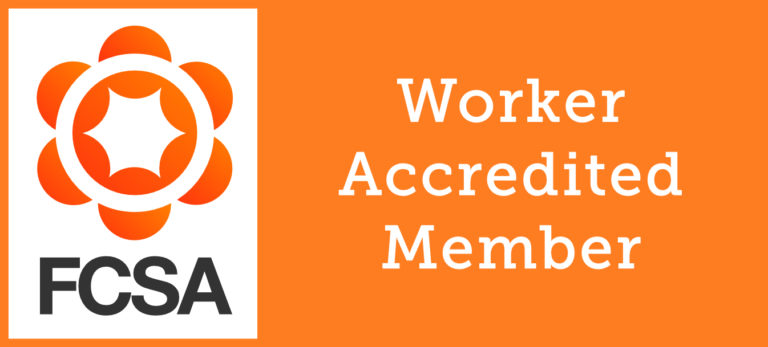Photo source: https://rentola.com/for-rent/amsterdam#gallery

A July 2021 survey revealed that 42% of the UK’s professionals are eager to work abroad. The Covid-19 pandemic has sparked renewed interest in a different pace of life, more freedom, flexibility and exploration of other cultures and landscapes.
From visas, tax and compliance to job opportunities, wellbeing and life experiences, Generate’s payroll and contractor management experts reveal our guide to contracting in the Netherlands.
5 Things You Need to Know Before Contracting in the Netherlands
1. Visas
Following the UK’s departure from the EU, British contractors will no longer enjoy the friction-free rights to work and travel that previously existed. However, Dutch employment opportunities are abundant for skilled contract specialists. From 2021, UK citizens must apply for a residence permit to move to the country for any amount of time. For those working in the Netherlands for fewer than 90 days, your employer must apply for an employment permit on your behalf; for contracts lasting longer than 90 days, your end client must apply for a combined residence and work permit on your behalf.
Find out more about Dutch visas and work permits.
2. Tax & Compliance
Whilst the Netherlands offers profitable opportunities for contractors, the country has also seen recent tax reforms that all individuals should be aware of before committing to an assignment. The new rules include:
- Stricter rules on zero-hour contracts and short-term assignments
- Increased tax contributions for employees working under fixed-term and other irregular contracts
- The official tax-free margin has been temporarily increased to help businesses and individuals recover from the pandemic
- Workers employed through payroll agencies will now be entitled to pensions
- The maximum period within which fixed-term contracts may follow one another will be increased to three years and limited to three renewals or extensions
- Professionals working without any involvement of a payroll company will be entitled to the same benefits as permanent colleagues performing the same role
- Similarly to the UK’s IR35, the distinction between an individual’s classification as a payroll or temporary agency worker will depend on several factors such as whether the employer recruits the employees itself, and whether the individual is exclusively assigned to the company
- Employment contracts must be written and payslips must contain detailed agreed terms and conditions.
Find out more about the Balanced Labour Market Act.
Find out more about tax support for contractors working abroad.
3. Economic & Job Opportunities
The Netherlands is home to a plethora of large global companies, with many belonging to the Fortune Global 500 and recognised as some of the world’s most profitable organisations. Businesses headquartered in the Netherlands include Royal Dutch Shell, ING, Airbus, Aegon, Philips, Heineken, ABN AMRO, Douwe Egberts, Akzo Nobel and KPMG. Companies with a considerable Dutch presence, offering thousands of potential employment opportunities, include Unilever, IKEA, Netflix and Merck.
Although like many European countries, the Netherlands was hit with multiple peaks of Covid-19 cases and resulting lockdowns, the Dutch economy is predicted to recover strongly and rapidly from the third quarter of 2021. Consistently ranking amongst the top economies in Europe, the robust recovery is projected to continue into 2022 with further growth in 2023 and beyond, positively positioning the nation to offer employment opportunities for skilled specialists in the years ahead.
IT contractors will find Dutch assignments particularly quickly. Although the country has one of Europe’s highest proportions of IT specialists in the total workforce (at 5.6% of the total Dutch workforce compared to the EU average of 3.9%), IT professionals are included on the nation’s official list of Shortage Occupations. There are currently 12,300 unfilled tech positions in the Netherlands, meaning 26 job vacancies per available tech worker.
Expat contractors with specialist skills in the areas of software development, data analytics and technology service managers will find the greatest demand for their services. Teachers are also high on the Shortage Occupation List, and expat teaching professionals can earn very competitive rates of pay.
4. Personal Wellbeing & Work/Life Balance
The Netherlands has the lowest incidence of long working hours in the OECD: a miniscule 0.4% of Dutch workers toil for very long hours, compared to the OECD average of 11%. Full-time contract and permanent staff devote 16 hours of their day on average to sleeping, eating, leisure, fun and socialising, compared to the OECD average of 15 hours, meaning the Netherlands ranks third place of the EU’s 27 countries for best work/life balance after Italy and France.
Dutch businesses pioneered remote and flexible working long before much of the world. The 2016 Flexible Working Hours Act was entered into law with the aim of improving the work-life balance of Dutch employees. Before the pandemic, the Netherlands offered Europe’s joint highest levels of home working, with almost 40% ‘usually’ or ‘sometimes’ working remotely. Local organisations have long understood the direct link between home working and both preparedness and effectiveness.
Home working trends are set to continue in the country: recent research commissioned by the Dutch government has confirmed employers’ intentions to invest in greater flexibility. The July 2021 survey, carried out amongst 1,100 employers who have more than 100 workers, showed that:
- 41% of business leaders plan to improve opportunities to work from home
- 32% plan to increase or introduce expenses for remote workers
- 45% also plan to invest more in online meetings
- 26% are investing in more flexible working hours.
The nation’s active championship of flexibility will ensure a positive working experience, providing better mental health and wellbeing, for international contractors.
5. Reasons to Live in the Netherlands
The Netherlands boasts a very diverse and inclusive culture, with equality a core national belief and modernity, innovation and individual expression championed across the country.
The nation was recently ranked as the sixth happiest place to live in the world. Residents and temporary workers enjoy high living standards, excellent health, positive social support and high life satisfaction rates. Dutch businesses, communities and individuals are known to be friendly, with the majority speaking English, ensuring an easy transition for any international contractor.
Sustainability is a way of life in the Netherlands: the country is ranked 13th best in the world on the Global Sustainability Index which measures national action on pollution, climate change, policy, energy, oceans and biodiversity. Cycling is the most common form of transport, with almost 23million bicycles in a country with a population of 17million people.
The Best International Support for Contractors
Generate’s payroll and contractor management team have extensive experience supporting international contractors in the Netherlands. Find out how we could help you.
Not sure whether the Netherlands if for you? Explore the 5 Best European Countries to Work as a Contractor.











